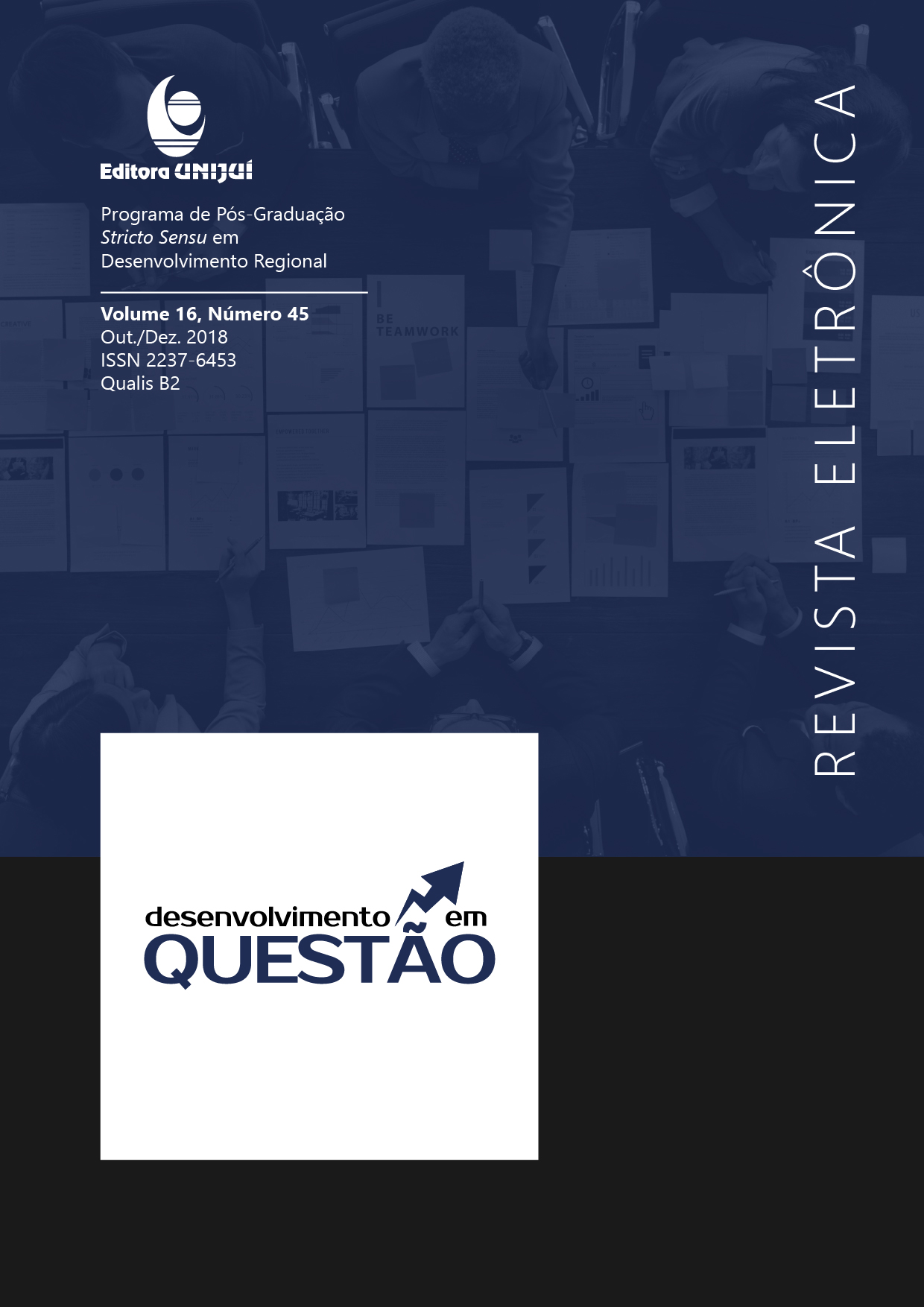A Formação de Redes como Alternativa para o Desenvolvimento Regional
DOI:
https://doi.org/10.21527/2237-6453.2018.45.154-169Palavras-chave:
Redes, Agências de Desenvolvimento Regional– ADR, Desenvolvimento Regional,Resumo
A formação de redes como estrutura organizacional, entre empresas, governo, instituições financeiras e de ensino, além da sociedade em geral contribuem para o desenvolvimento regional. O objetivo desta pesquisa foi analisar a formação de redes, como alternativa de desenvolvimento regional e as relações entre os atores envolvidos no processo, tendo como objeto de estudo a Agência de Desenvolvimento Regional (ADR) de Quilombo – Santa Catarina. Com base em análise documental e entrevistas foi possível evidenciar que a ADR de Quilombo possui papel relevante no que tange a obtenção e encaminhamento das necessidades dos municípios, atuando como elo entre as prefeituras e o governo do estado, porém quanto a interação entre o governo e as empresas ou as entidades empresariais ela é baixa. Com base no exposto fica evidente a necessidade de uma maior atuação da ADR principalmente a criação de redes e desenvolvimento da região com maior interação entre todos os atores, sejam públicos, privados ou a sociedade.
Downloads
Publicado
Como Citar
Edição
Seção
Licença
Ao publicar na Revista Desenvolvimento em Questão, os autores concordam com os seguintes termos:
Os trabalhos seguem a licença Creative Commons Atribuição 4.0 Internacional (CC BY 4.0), que permite:
Compartilhar — copiar e redistribuir o material em qualquer meio ou formato;
Adaptar — remixar, transformar e criar a partir do material para qualquer fim, inclusive comercial.
Essas permissões são irrevogáveis, desde que respeitados os seguintes termos:
Atribuição — Atribuição — os autores devem ser devidamente creditados, com link para a licença e indicação de eventuais alterações realizadas.
Sem restrições adicionais — não podem ser aplicadas condições legais ou tecnológicas que restrinjam o uso permitido pela licença.
Avisos:
A licença não se aplica a elementos em domínio público ou cobertos por exceções legais.
A licença não garante todos os direitos necessários para usos específicos (ex.: direitos de imagem, privacidade ou morais).
A revista não se responsabiliza pelas opiniões expressas nos artigos, que são de exclusiva responsabilidade dos autores. O Editor, com o apoio do Comitê Editorial, reserva-se o direito de sugerir ou solicitar modificações quando necessário.
Somente serão aceitos artigos científicos originais, com resultados de pesquisas de interesse que não tenham sido publicados nem submetidos simultaneamente a outro periódico com o mesmo objetivo.
A menção a marcas comerciais ou produtos específicos destina-se apenas à identificação, sem qualquer vínculo promocional por parte dos autores ou da revista.
Contrato de Licença (para artigos publicados a partir de 2025): Os autores mantêm os direitos autorais sobre seu artigo, e concedem a Revista Desenvolvimento em Questão o direito de primeira publicação.











